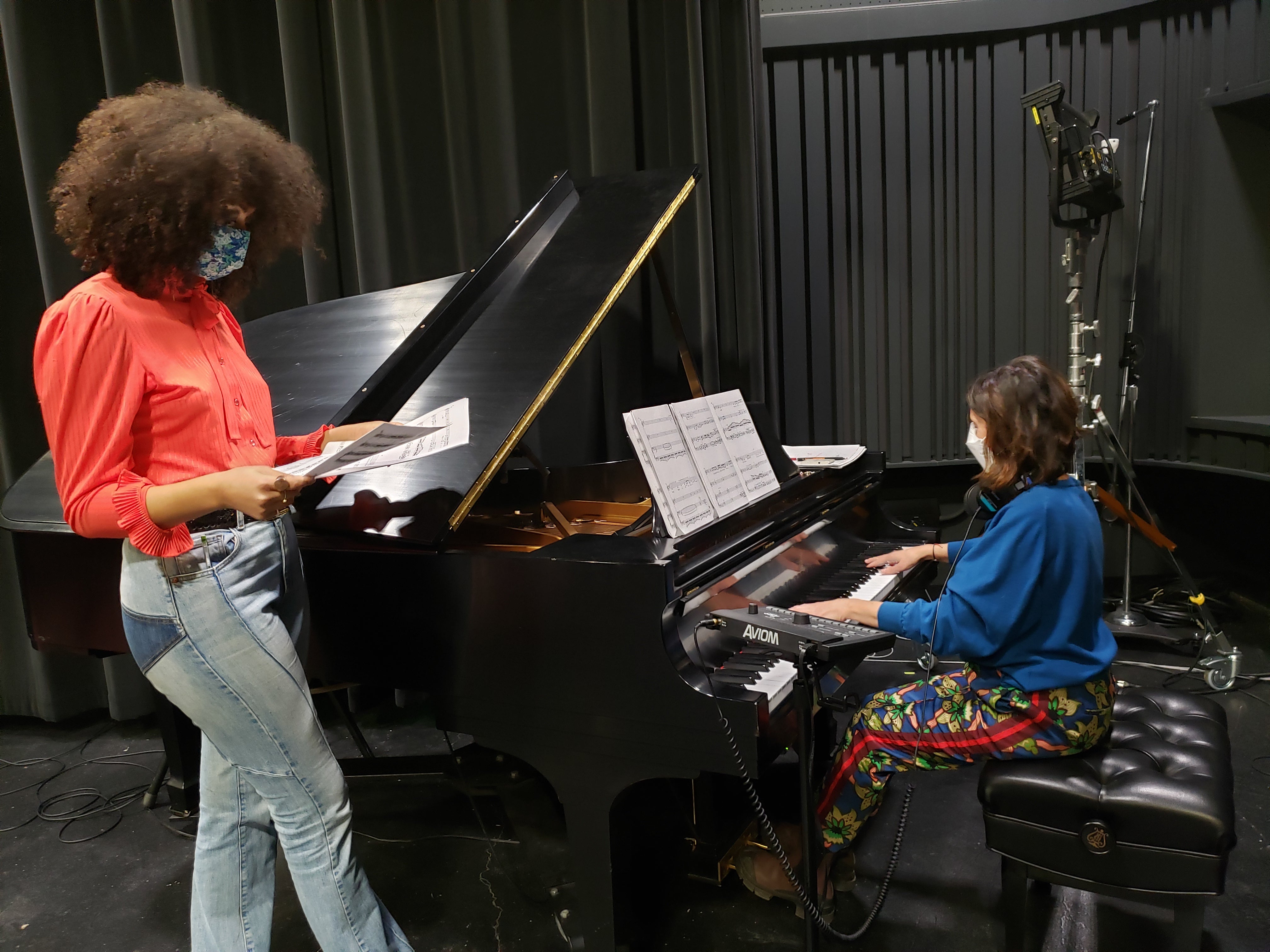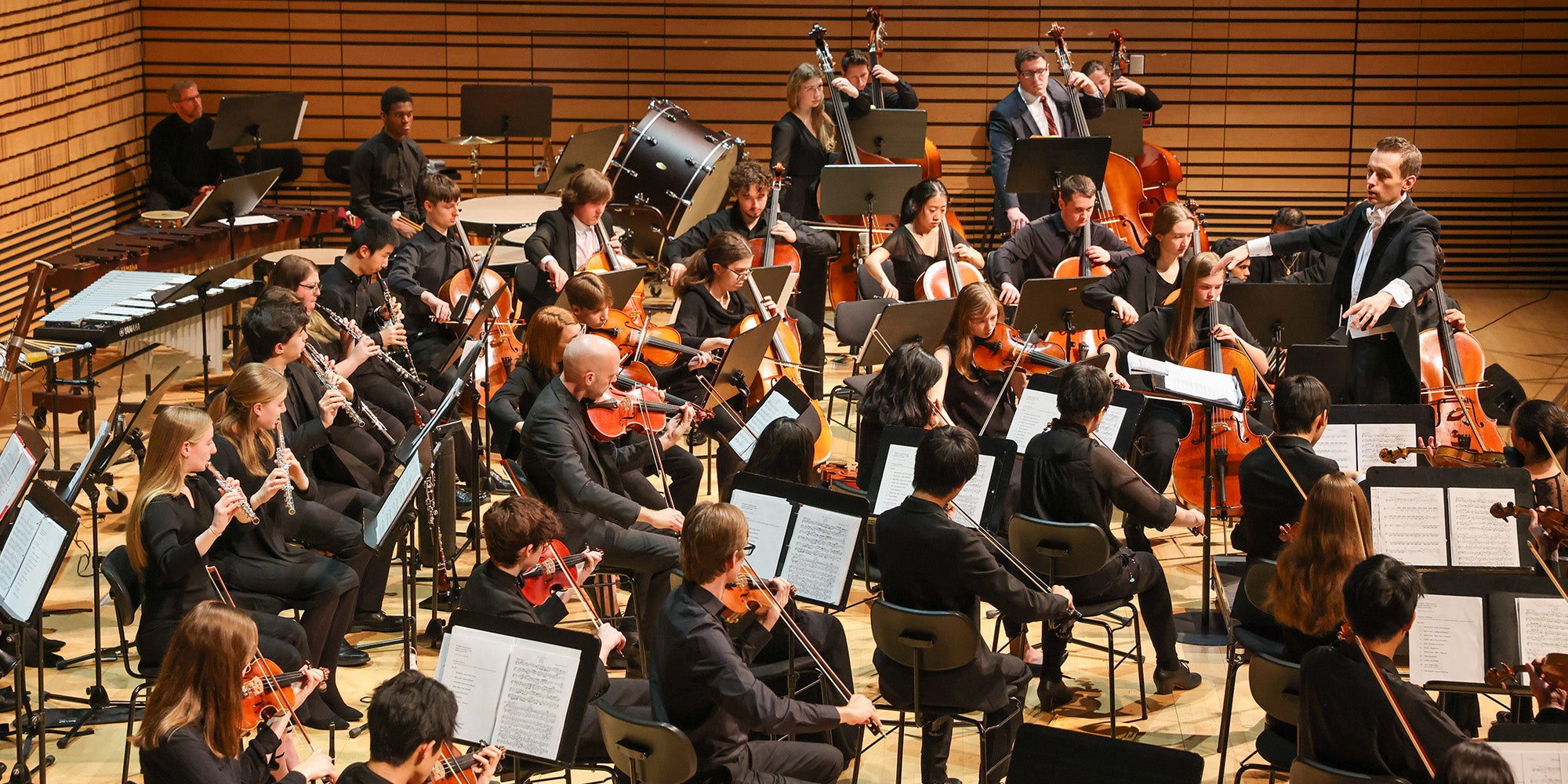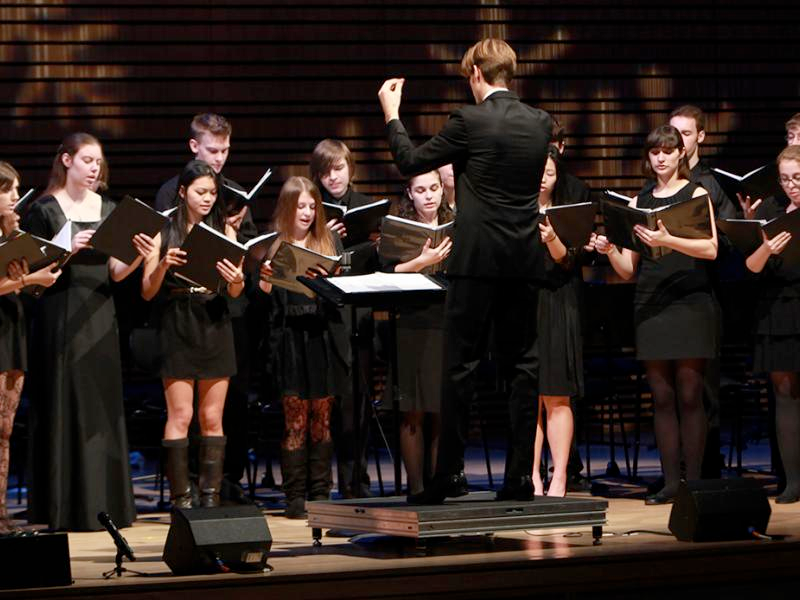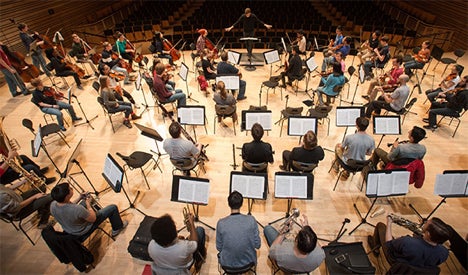RPI offers an innovative Bachelor of Science in Music degree that integrates traditional and contemporary musical practices that span acoustic and electronic music, written composition and improvisation, performance and production, and contemporary listening strategies.
With a focus on creative engagement, current and emerging technologies, and experimental, interdisciplinary, and cutting-edge sonic art, the program provides a strong foundation for a wide variety of student interests.

Program Overview
The foundation of the music degree is built on five pillars:
- theory and musicianship
- technology as a creative tool and research platform
- historical, social, and cultural contexts for music-making
- practical experience, including performance and production
- creative/research projects
From this foundation, students go on to pursue a focus area of their own choice through elective classes, culminating in a comprehensive senior capstone project. Students work closely with our faculty of internationally recognized artists, researchers, and scholars to design a degree path to fit their educational and career goals.
Double Majors
In addition to functioning as a standalone degree, the 40-credit B.S. in Music is designed to allow students to double-major, complementing most other degrees at RPI. Common double-majors include Computer Science, Games Simulation Arts and Sciences, Engineering, and many others.
Minors and Pathways
The music program also offers a Minor in Music, as well as a Music Integrative Pathway. Minors consist of 16 credits, while the Integrative Pathway requires 12 credits.
Program Outcomes
Graduates of this program have gone on to pursue:
- Graduate studies
- music composition
- music technology
- composition for visual media and games
- Industry work
- music software and plug-in development
- sound design
- software engineering and development for games


